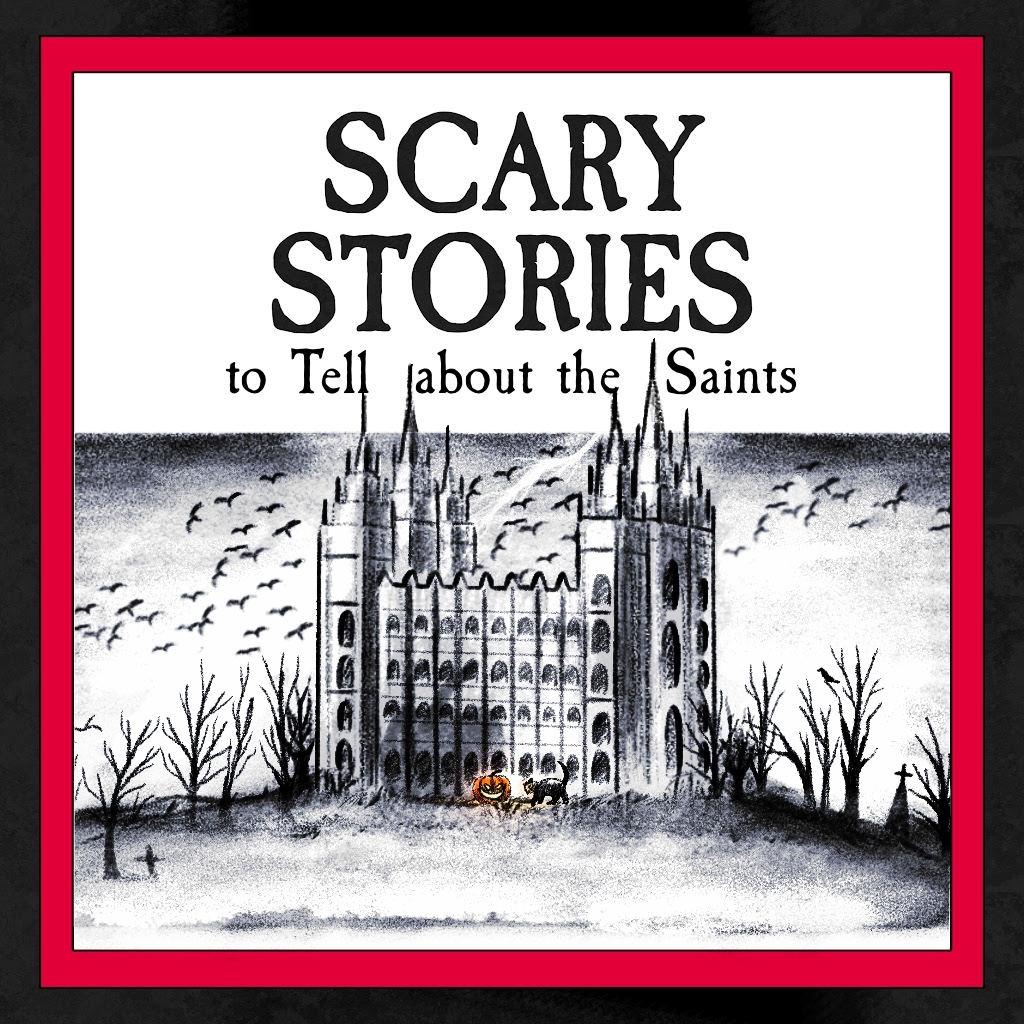I recently came across another Twitter thread reproving church members for taking issue with the way they’re being represented by Under the Banner of Heaven. According to these voices, the brazen departures from the facts surrounding the murder, the mischaracterization of the innocent people involved, the manipulations and fabrications of church history, and the demeaning portrayal of Latter-day Saint culture are forgivable in light of widespread elite agreement that this faith community is mired in violence and misogyny. Some of these pronouncements could only come from someone whose life has largely been shielded from the kinds of abuse and trauma that Church teachings and culture largely prevent.
I suspect that what church members are really experiencing is a kind of punishment for not aligning with elite culture more broadly. It doesn’t really matter that there’s no evidence to suggest either that Latter-day Saints are especially violent or that when they are violent, it’s because of their religious beliefs. It doesn’t even matter that there’s plenty of evidence to suggest otherwise. The point is that the Church and the cultural norms of its orthodox members are guilty of a kind of cultural violence and misogyny by not more fully incorporating progressive attitudes about gender and sexuality. For this, we are told, we have brought upon ourselves UTBOH’s counterfactual, contrived depiction of not only our own origin story but of one of the greatest tragedies to have occurred among church members in its history.
In the background of this discussion are people who claim that their experiences with the Church have left them “traumatized.” Certainly, real abuse occurs, and there can be no tolerance for it. Christ Himself demanded as much when He said that anyone who harmed a believer should be cast into the sea with a millstone around his neck. Church leaders, too, have spoken forcefully and imposed discipline on those guilty of abuse.
As a young girl, I grew up surrounded by poverty (at times extreme), physical violence, and drugs. I don’t mean the psychological trauma of sitting through an uncomfortable discussion about the law of chastity. I mean the kind where someone chokes you after you complain that their pornographic video is keeping you awake on a school night.
The kind where you’re living in a tent and eating condiments.
The kind where you remove the car’s spark plugs so it can’t be used for another beer run and then hide in the garage armed with a boat paddle in case the adults discover what you did.
We lived in various low-income housing, and the first time I can remember a man making me feel dirty was when I was five and an adult wolf-whistled at me on my roller skates. I was 6 when a man in a convertible pulled up next to me and exposed himself to me.
My parents divorced when I was 2, and my mother’s second husband would beat her, once smashing her forehead on a faucet and punching her so hard that it tore the skin. His nephew tried to get me to touch his privates while we played a board game in my room.
Because my parents were poor, I didn’t fly out to visit my biological father; I took Greyhound buses, where I spent two days each way playing avoid-the-predator. En route one time, a 40-something man decided that what the 12-year-old girl next to him really needed was a shoulder massage.
My dating life as a teenager was an endless series of males, often 4 or 5 years my senior, doing everything conceivable, lawful or not, to try and satisfy their desires. Thankfully, my mother had impressed upon me the importance of waiting for intimacy, but occasionally the forcefulness of these encounters left me afraid for my life. The predatory males in my life came from a variety of social classes and backgrounds: some were outcasts, some were popular, some were working-class, and some were college students from stable families. Some were brazen and aggressive, but most were simply manipulative or opportunistic. They weren’t necessarily malicious; they were just taking their cues and the limits to their desires from the wisdom of our wider culture. Attending church was my first experience where trustworthy males were the norm.
Such had been my experience of overt violence, misogyny, and trauma when, at the age of 15, I met missionaries from The Church of Jesus Christ of Latter-day Saints.
One of the first things that drew my interest in the Church was that not a single missionary made any attempt to engage with me on a sexual level. Attending church was my first experience where trustworthy males were the norm. It was an earth-shattering revelation to me that you could have a culture where men act like that consistently. All the adult males in the church treated me like a daughter—a cherished one—something that my own father had failed to do.
And these experiences continued when I enrolled at Brigham Young University, where I was never once pressured for sex in five years of dating male 20-somethings. In those years of both casual dates and multiple long-term relationships, I was never once struck, called a name, whistled at, groped, or complimented on one of my body parts. I went on to work as a secretary for the Church’s Family History Department, where men would regularly open doors for me, chide each other for not showing me enough deference, display obvious biases toward my opinions and desires, and try to set me up with their sons.
When I finally left Utah, it was with an elevated sense of inherent value that nothing in my childhood would suggest was possible. This is the principal point I wish to make. My childhood left me shot through with fear and shame—innumerable layers of it. I may not recover from all of it in this life. However, the healing and the real happiness I’ve experienced so far are nothing short of miraculous. And it is largely because of my association with the Church and the love bestowed on me by the good and faithful men in it.
Contrary to popular perception, men in leadership capacities in my faith are not “bosses” but brothers and fathers, which I desperately needed. I don’t know why or how, but I know that I needed to feel this kind of love, particularly from men.
Few of these men knew anything of my past, and some of them had no specific stewardship over me. But at every turn, I found myself inexplicably but genuinely loved—even adored—by honorable, worthy, selfless men. I came to know God’s own love in large part through interactions with inspired priesthood leaders who became conduits for God’s own pure and rationally unaccountable love that put my shame to shame. A counselor in one of my ward bishoprics drove 30 minutes each way to deliver me to seminary every morning—which began at 6 am. Another man in my ward, a country veterinarian, offered to pay for me to serve a mission (about $7,500 at the time) despite the fact that the Church has funds for poor missionaries. A former student ward bishop has remained in my life as another father to this day, through all my tragedies and triumphs, even taking my 4 am phone calls during bouts of PTSD and weeping with me when my faith began to buckle under the strain of resurfacing nightmares.
I suspect one of the chief reasons why God expects so much of men in this church is because they often provide tangible examples of His own love to those who might otherwise assume He was distant or indifferent. Perhaps the greatest miracle yet has been my own husband, whose simple but unswerving sense of duty, hard work, honesty, and incomprehensible devotion have never allowed me a second’s doubt that he loves me more than himself. The violence and exploitation of my past die a little more each day, overpowered by his living, breathing expression of honorable, selfless manhood.
What could better blot out the memories of abandonment and abuse than his sweat and tears, his tenderness and protection, his body and soul, willingly committed to me for eternity? Was he, and the countless men like him in the Church, the product of a violent and misogynistic religion?
Of course not. God is, clearly, the ultimate source of all love. His face moved upon the formless void of the deep darknesses of my life and said, “Let there be light.” And there really was light. And though I searched for Him, feebly at first and then with increased earnestness as He pulled me along, I did not truly meet Him until I found His church.
I don’t want to oversimplify. There have been good men in my life outside of the Church, such as a wonderful stepfather who loved and provided for me. And I know there are, and always have been, bad men within the Church; even the best ones are not perfect, and, as it has been said, “the dividing good and evil cuts through the heart of every human being.”
But the Church does a remarkable job of forming men who care for women and about women. This only becomes less clear and obvious when we limit what it means to care about women to merely holding certain political or social views (views which are gladly held by many opportunistic and predatory men). In my experience, some political and social “freedoms” have come with a private price that is largely paid by the women and children who nevertheless suffer from the behavior of bad men.
In contrast with my early life, the men who have really been able to care about women are those who have worked to curb their impulses, who are responsible and diligent, and who have cultivated a sense of sacredness about women and children that allows them to go beyond mere external pressures to “be good,” and internalize the power of their influence for good. You cannot create men like this through shame, hashtags, or politics.
You cannot create men like this through shame, hashtags, or politics. Church teachings and priesthood responsibilities provide unique opportunities for the Lord Himself to develop the spirit-deep qualities in men that enrich women’s lives.
I don’t want people to have to live at the mercy of men whose ideas about women, sex, and responsibility were formed primarily by broken families and Hollywood. Yes, there will always be things that can improve within the Church and among its individual members—I’m not asserting that anything’s perfect here or that there isn’t room to improve. But in our haste for progress, let’s not forget the empowerment denied to the many women and children whose lives lack the stability and resources provided by caring, committed husbands and fathers. The idea that the Church should be lectured by our larger culture about its violence and misogyny defies everything in my life’s experience and that of many other women. Having endured my share of trauma and violence, much of it at the hands of men, I can confidently say that this church has been my haven for healing.


















